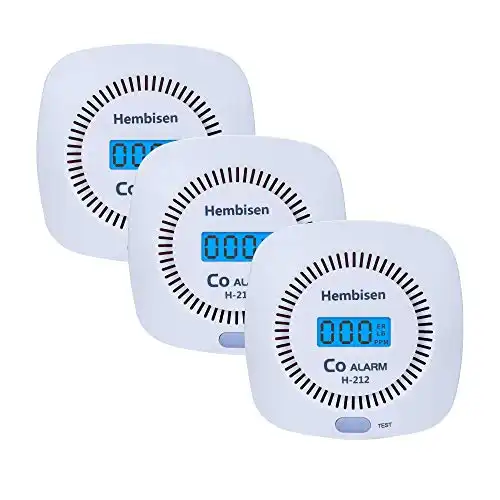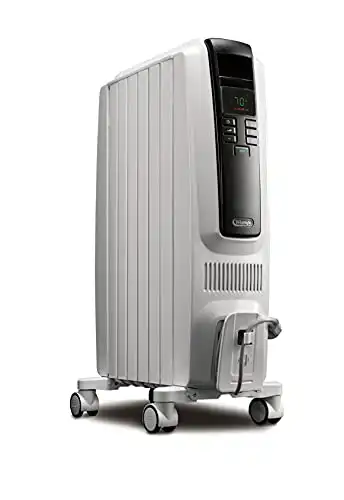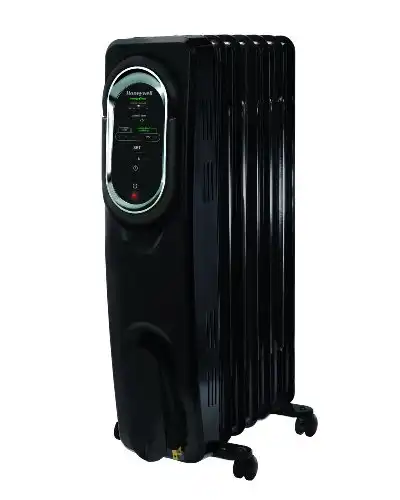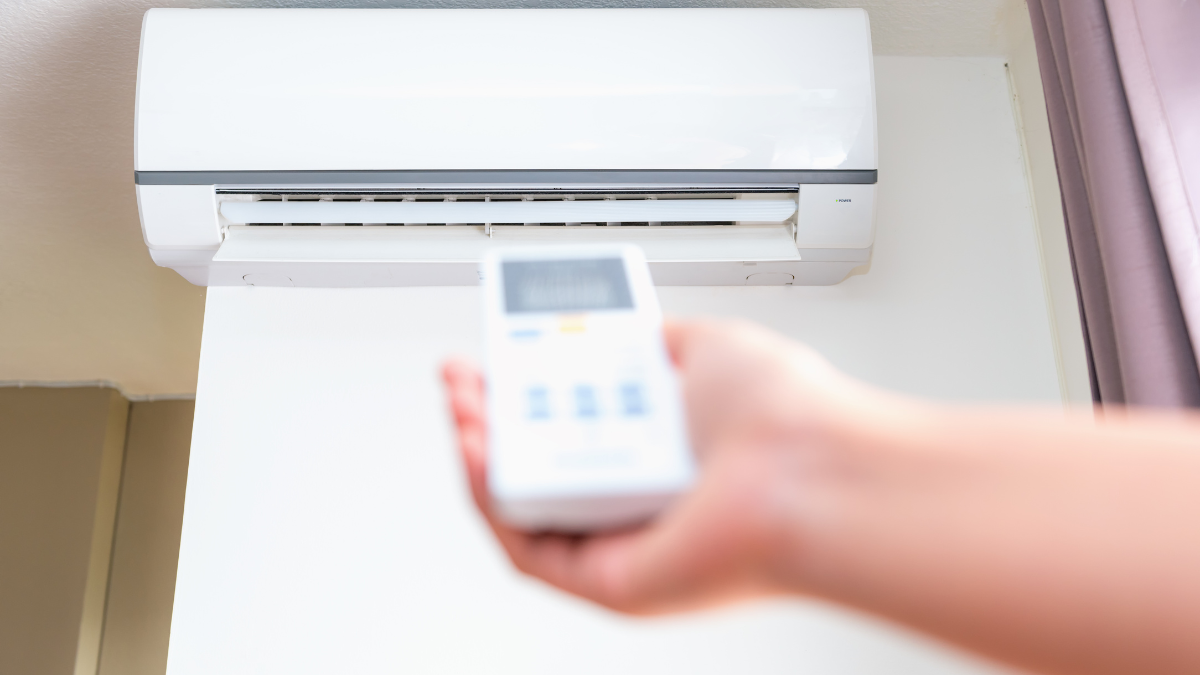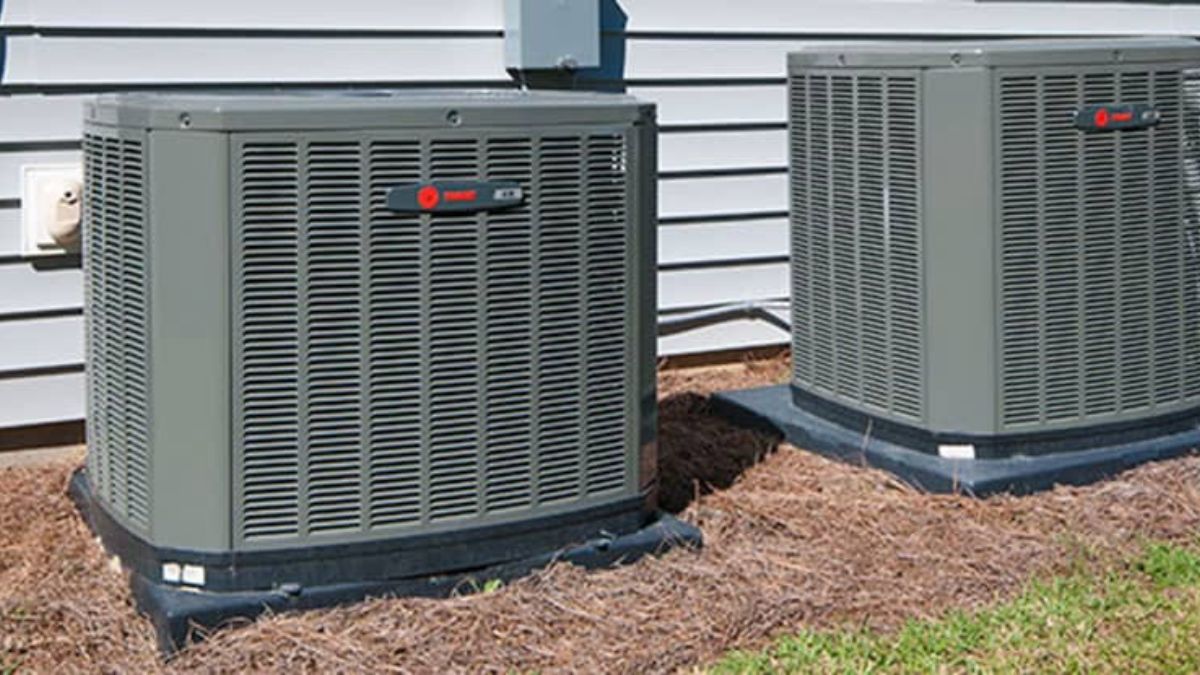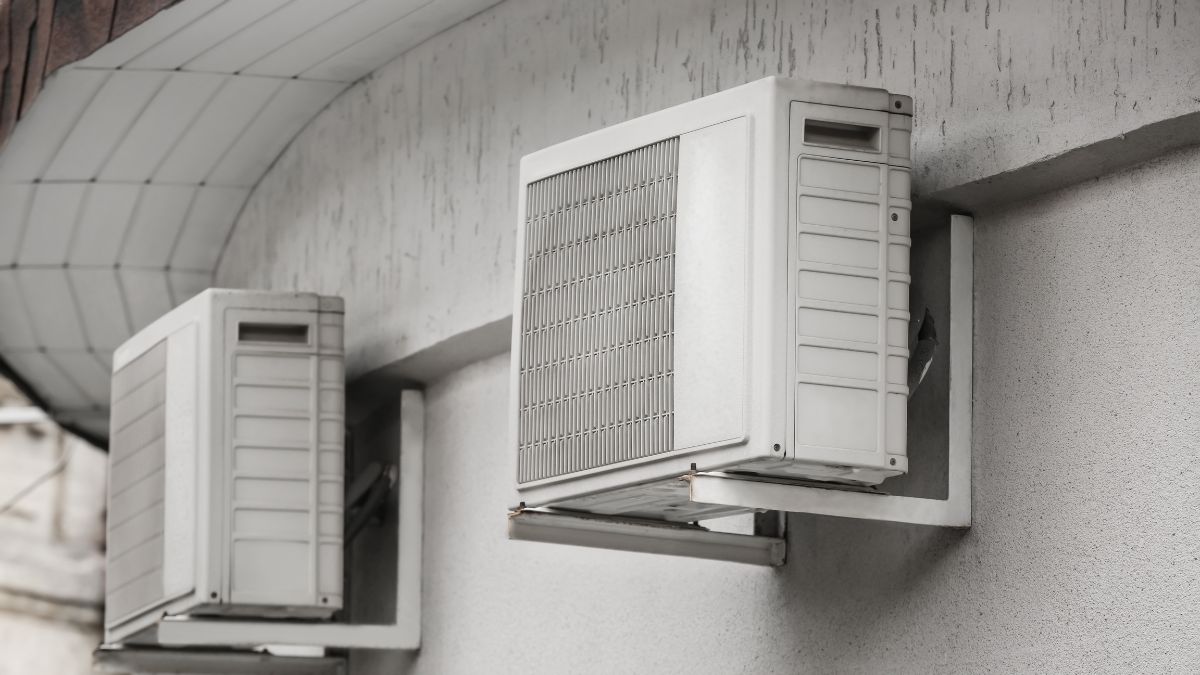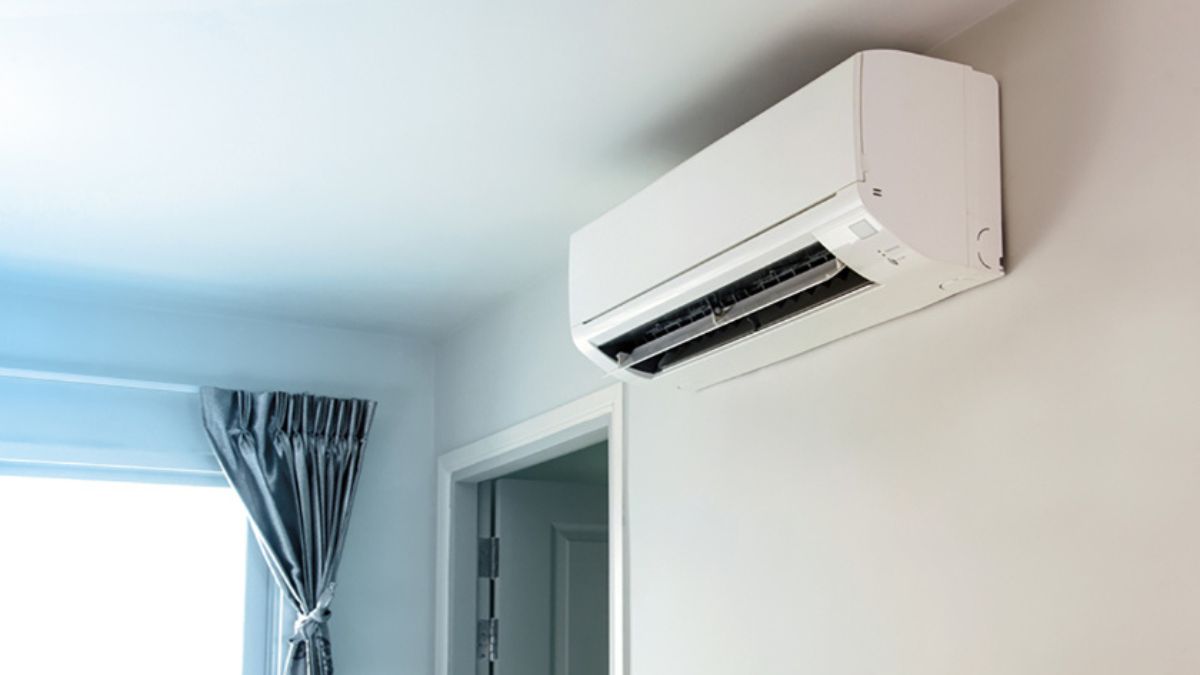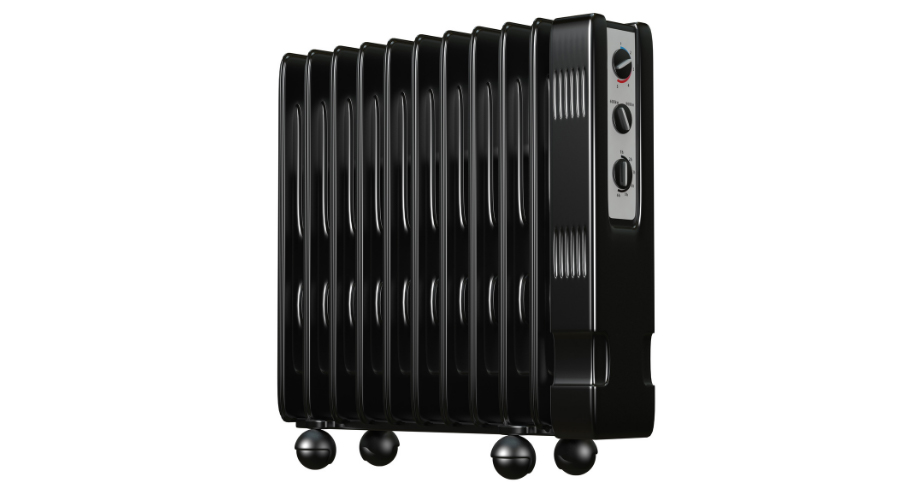
Burr. It is starting to get chilly where you live, and you require a newer heater! You are currently doing research and stumble across oil space heaters.
This particular type of radiator may attract your attention because it can circulate heat for longer than any other connector.
Overall, when searching for anything that will heat your home, you may be asking if it is safe to leave your heater on at night or not.
In short, it is perfectly safe to leave an oil heater on overnight. Because these particular radiators do not expose any heating elements, the metal surface does not get extremely hot, whereas other heaters display these parts. Not only that, but they have many other safety features, such as tip-over protection and built-in timers.
Bearing that in mind, we will go over this subject more in detail and see if they are safe to leave unattended. Overall, the most important thing to keep in mind is the well-being of the entirety of your household. So without further ado, let us get into the nitty-gritty details.
Is It Safe To Always Leave An Oil Heater On?
In most cases, leaving an oil heater on overnight is safe, assuming you have gone out of your way to ensure proper safety precautions have been taken. One of the first things you want to do to guarantee safety is properly clearing the area around the oil heater.
Anything that could be flammable on the ground and unlikely that the oil heater itself would fall over should be considered.
Establish Rules When The Heater Is In Usage
There should also be a significant explanation to everyone in the home about how the oil heater functions and educate them on the same safety aspects.
This is so that everyone is on the same page about the general operating procedure and how you should handle it.
This is especially true for younger children. Kids need to understand the risks involved with playing near one and accidentally knocking it over and what possible fire hazards in that event.
Overheat Protection
Human error aside, almost all modern oil heaters come with some failsafe to prevent injuries or fire hazards from occurring.
Most of these oil heaters come with overheat protection standards, which turn the heater off automatically if anything happens to it in the first place.
Bearing that in mind, these triggers are usually only overheating, but some include safety shut-offs upon tipping over.
Are Oil-Filled Heaters Safe To Leave Unattended?
Asking if oil-filled heaters are safe to leave alone is more tricky than the discussed topic. The main reason is that using it typically means someone is around to benefit from it being on in the first place.
Hypothetically speaking, if you took the time to make the safety adjustments like removing excess materials from around it, like clothing and other fire hazards, it would be safe to use while you were out.
However, practically speaking, you would not need to if we were to assume you were stepping out to go to the store or something along those lines.
This is because all oil heaters retain their heat for quite a long time, even after they have been turned off, so keeping it on while you are away isn’t necessary in the first place.
Oil Heaters With Timers
Moving along with that, most modern oil heaters have built-in timers to turn off after a given duration, thus making them much safer than previously expected.
When shopping for oil heaters, it would be wise to get one with this feature only for the added peace of mind when stepping out or going to sleep.
By and large, the oil heater itself will only need to be on to help you get into a comfortable temperature so that you can sleep, so having it turn off roughly an hour or so after you lay down is typically the optimal setting.
Don’t Use It To Dry Clothes
One last thing to be aware of is that while some people like to indulge in heating or even drying their clothing on top of an oil heater, it can be hazardous, especially if you are doing it before bed.
Using the heater to dry clothes can start a fire, so it is highly recommended not to do this for your safety.
Can Oil Heaters Explode?
Coming full circle with some of the more dire consequences of not taking the proper safety precautions, they have indeed been known to explode given certain circumstances.
This almost always is caused when their internal thermal fuses fail to shut them off, resulting in either a thick plume of black smoke, fire, or oil sent on the surrounding area or fire. In the absolute worst-case scenario, terrible burns can yield disfiguring scarring.
While these may seem like some significant risks, the possibility of this happening in the first place is extremely low if you take the time to guarantee your and your family’s safety, as mentioned in the above topics.
A few oil heaters’ variants include built-in fans to add another layer of protection to the entire product, so be sure to shop around to get one that fits your specific needs!
Can You Get Carbon Monoxide Poisoning From Oil Heaters?
Thankfully the answer to this question is relatively short. It is extremely rare to get carbon monoxide poisoning from oil heaters because the oil inside them never burns.
Because the fuel is never burned, no gasses or fumes will be released. This is all due in part to the healing process inside the enclosed frame of the product.
It is wise to ensure you have an oil heater burning fuel and inspect it properly to ensure sufficient ventilation to avoid any enclosed fumes inside your home. You can also purchase a carbon monoxide detector for better peace of mind.
Typically you can gauge whether or not your heater has anything like this by carefully reading the product’s description.
How Long Do Oil-Filled Heaters Last?
Oil-filled heaters last for a surprisingly long time if you take proper care of them, store them properly in-between uses, and ensure you utilize them in optimal settings.
Suppose you take excellent care of your oil heater. In that case, it can last anywhere between 15-20 years. However, if you are rather intensive on the unit and keep it at higher temperatures for extended periods, this duration cuts to roughly 10-15 years.
The primary differences between those lifetime values would be exercising extreme caution when moving them so they are not damaged by bumps and dings that may wear on the internal mechanisms and stop external damage when stored in places that can get damp or moist.
These lackluster storage locations cause internal corrosion and other issues that shorten the heater’s lifespan.
One final tip would be touching base on the temperature settings we mentioned. If you enjoy pushing the limit on higher environments, be aware that the heater’s coil will be at a greater risk for deterioration if you maintain it in those settings. This is just something to take note of.
Making The Most Of Your Heater
Now that we’ve covered general storage and usage, there are some other factors that we can go over to guarantee you get the most value out of your heater.
We’ve spoken briefly on placement with the storing location, but some prefer to use their heaters on a patio or deck to heat their outdoor experience. While this can be done and enjoy the heater’s benefits, it will dramatically shorten its lifespan.
Another attribute to be mindful of is whether your oil-filled heater is notorious for having inadequate lubrication. If the motor inside your heaters brand has the wrong oil, you can count on the unit’s lifetime to be short.
This is not even considering how much you spend trying to use a sub-par product.
Following suit with the lubrication of the motor would be what manner of fuel the oil heater utilizes. Simultaneously, some may be based on electricity while others use fuel. These different ammunition types can either lend strength to the heater’s life or be its bane.
Some fuel types can be beneficial because they can heat up quickly and maintain the heat for a more extended period, whereas some fuel types heat up quickly and cool nearly as fast.
The prior of those two would allow the oil-filled heater to last longer because it does not need to be on for the same time and still provides adequate heating.
While on the topic of fuel, we should probably check in on the prices of what it takes to run a halogen heater and an oil-filled heater and weigh those options.
As we stated earlier, you have both electric and gas heaters, but the prices of each area can determine which product will lend you the better cost-per-use ratio.
This is more or less to keep options in mind, but the safer option will always be an oil heater over a halogen heater.
Are Oil Heaters Better Than Electric?
As with all things in life, all choices have advantages and disadvantages, so let’s dive into this topic and find ourselves. Jumping right in, let’s chat about each’s efficiency concerning an average room size.
In most cases, electric heaters are most suited to smaller rooms. This is primarily because they are great at getting a room nice and toasty in a concise amount of time.
On the other hand, oil-filled heaters are more efficient at heating an entire room, and they can spread their warmth over larger spaces, thus making them optimal for covering the most area for the same effort.
Another feather in the oil-filled heaters would be entirely silent, making them great for offices or bedrooms where sound pollution and noise control are a must!
If we compare the two in a more formal face-to-face challenge, there might be a more linear viewing of the subject, so let’s start with our good friend, the oil-filled heater.
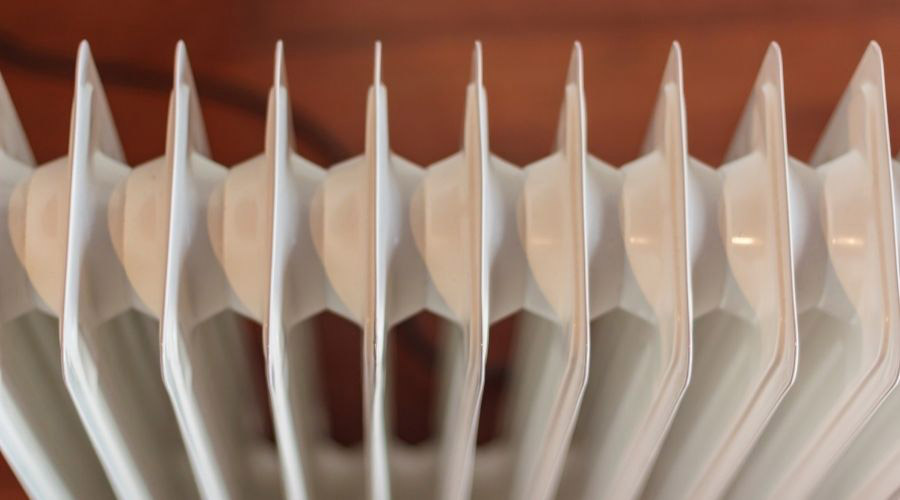
Oil-Filled Heaters
PROS:
- Energy-efficient: The oil heater is hugely energy efficient for what it brings to the table and has phenomenal heat retention.
After you’ve gotten your oil-filled heater to your desired temperature, it can easily save you a ton of energy and money by utilizing lower power settings to keep that warmth.
- Built-in thermostat: Moving right along, another boon of this kind of heater is the built-in thermostats they have. On average, they are incredibly accurate and are perfect if you have a set temperature in your head that makes you feel incredibly cozy.
- Silent: As we said above, the oil-filled heater is also entirely silent, thanks to the heat coming from the oil. This particular feature would be more favorable in an environment where some peace is desired over a low hum.
- Maintains heat longer: final benefit of the electric radiator heaters would be that it retains their heat over a much longer duration than an electric heater can.
This is all due to the oil’s heat retention, which makes it more viable as a source of warmth even hours after you’ve turned it off, offering phenomenal energy conservation.
CONS:
- Heavy: The offset on this would be that it is a heavier appliance due in no small part to the oil inside it.
While the heaters cover a wider area, they often weigh a minimum of over 20 pounds, and as such, it can be a bit of a pain to move around.
- Takes a while to heat up: This oil also has another small setback because it takes a bit to get to your chosen temperature. On average, you may be looking at half an hour before a room is at your desired temperature.
- Can be hot to the touch: Lastly, some oil heaters can be scorching to the touch. Not many are like that, as technology has advanced, but it does not mean that it does not happen still.
In this case, look at any reviews an oil heater has before purchasing, especially if you have younger children or animals.
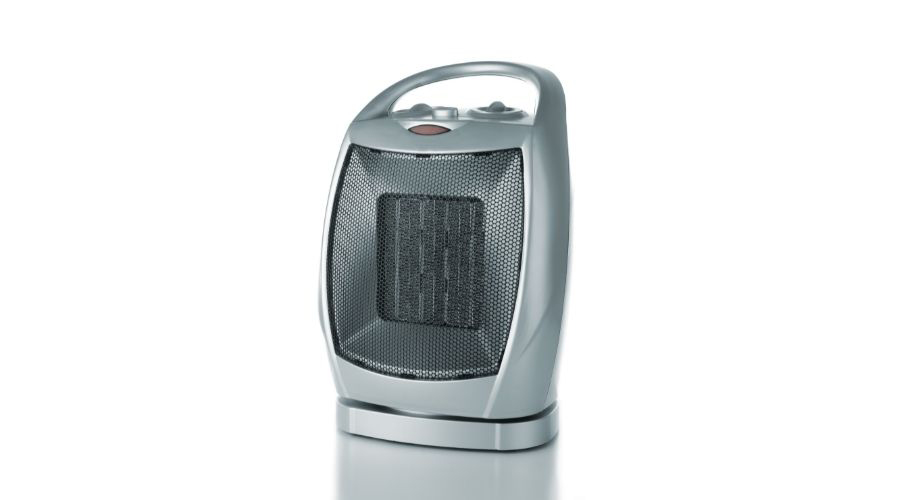
Electric Heater
PROS:
- Heating the room more quickly: The electric heater is a suitable product for what it offers, the first of these qualities being the speed at which it heats a room.
Unlike the oil-filled heater, an electric heater can heat a room in several minutes, utilizing multiple fans for extreme heat distribution, so it maximizes the time it takes to get things nice and warm.
- Much more affordable: It’s also cheaper on average than a traditional oil-filled heater, thanks in no part to its being a mass-manufactured product.
Another glaring difference would be that it is undeniable whether the unit is on, making it a much safer product for children because you can tell when it is on or off.
- Variety is the spice of life: Seeing a wide variety of them with even more market saturation, the competition involved typically leads to more affordable prices, which fits nicely in a short-sighted budget.
CONS:
- Is chilly minutes after it turns off: The same way the electric heater can heat an entire room in minutes, that same room will return to its original chilly state the second the unit is turned off.
Those same fans that distribute the unit’s heat across the room are also Achilles heels.
- Not suitable for rooms with poor insulation: If a room is drafty or has poor insulation, you will be in a frozen dystopia just as soon as you left it!
- It can be expensive in the long run: The electric heater’s lack of heat retention also means it will be heavy on your finances, thanks to it always needing to provide any benefit.
Not only that but the entire time the unit is on, there will be considerable noise coming from it.
- Not constant air circulation: One final tidbit on the portion of the fans would be the concern arising from the continuous air circulation, this will bring about all manner of allergens and dust, so if someone is susceptible to either of these, it’s worth bearing in mind.
- Lacking inconsistent temperature: As an added note, electric fans almost always lack any consistent temperature and will waltz into being either too hot or not warm enough, needing you to micromanage its settings constantly.
Do You Have To Refill Oil Heaters?
The oil inside of an oil-filled heater is inside an enclosed space that you cannot open, and the oil in itself can’t replace it.
This is a pretty nice part about them due to the amount of time and energy you save by having a plug-and-play set up to keep your room heated.
Speaking more overall on general maintenance, oil-filled heaters are very straightforward in that respect, meaning you don’t have to do much for them to keep functioning correctly.
The only things to be wary of would be storage location and where you are using the heater, indoor or outdoor.
Best Oil Heaters To Leave On At Night
Bearing all of this in mind, you may be wondering what the best oil heaters to have on overnight is, especially ones that will leave you worry-free. Below, you will see some of the most top-notch ones that are highly recommended.
The De’Longhi Oil-Filled Radiator Space Heater life lasts a reasonably long time. One user mentioned that it served him roughly seven years, so you are getting your money worth buying this product.
De’Longhi radiators are very durable and come with 1500 watts of heating power. They also come with an ECO mode to save energy in the long run with these heaters. These heaters serve very well in small and enclosed areas.
Some people notice that it will take a long time to heat the room, but this will be expected with oil-filled heaters, but once the room is heated, it stays that way for a long time.
Here are some of the characteristics it comes with:
- Adjustable thermostat.
- 1500 watts of heating power.
- Comes with a remote control.
- Extraordinarily durable and maintenance-free.
- Auto-shutoff to prevent overheating.
- ECO-mode to save energy.
Honeywell HZ-789 EnergySmart offers one of the best features, an auto turn-on and shut-off system, which many users say they love about this particular radiator.
Not only that, but it is entirely safe and mobile, although many customers say that the wheels do not work as well as they should, which can be a massive turn-off for many buyers.
However, they offer a 360-degree tip-over switch, and the system is protected with an overheating system, as the other two are above.
People have said that the heater heats up reasonably nicely, although it is done rather slowly. If you have a massive room, it is best to get 2 to heat them in their entirety, but the heating system works perfectly for smaller areas.
Some of their highlights include:
- An on and off-timer of anywhere between 1 to 12 hours.
- Tip-over and overheating, and overload protection.
- Energy-efficient qualities.
- 3-year warranty.
- Different heat settings.
- 1500-watt of heating power.
- Luggage-style handle.
Final Thought
To summarize everything in a nutshell, oil heaters are safe to leave overnight as long as you take preventive measures to ensure safety.
These things include, but are not limited to, not leaving anything 3 feet away from the heater itself and not using it as a dryer for your clothes or other fabric items.
You can better ensure the safety of your entire household by listening to the advice of experts and the instruction manual. We hope this has helped you and wish you the best of luck in getting the best option possible within your home!


